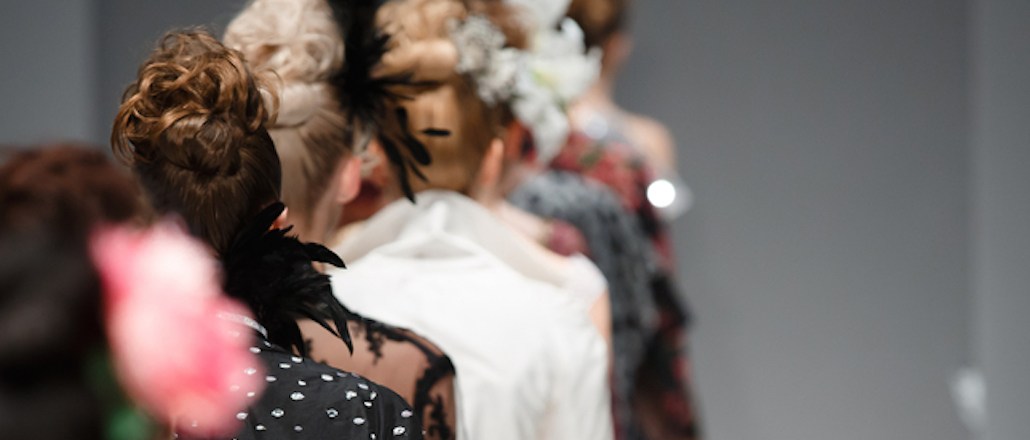Save 50% on a 3-month Digiday+ membership. Ends Dec 5.
‘We live in a culture of immediacy’: Fashion Week tweaks its tired model

This fashion week, designers are pulling at the seams of tradition and making their collections immediately available to buy rather than forcing people to wait for months.
It’s not a shocking strategy, but one driven by social media. Burberry brought it to the level of leading fashion houses earlier this month when CEO Christopher Bailey announced that the brand would no longer abide by the traditional fashion calendar. Rather than show its spring collection in the fall, it will show two collections a year, untied to the seasons and combining men’s and women’s wear into one unit. Tom Ford and Tommy Hilfiger closely followed suit.
“There’s a disconnect that primarily exists with the fashion houses’ new audience: the general public, via social media,” said Mary Orton, who runs the fashion blog Memorandum and has been attending fashion weeks for the past four years. “We live in a culture of immediacy and instant gratification — the general consumer doesn’t understand why the fashion world expects them to wait six months to purchase merchandise.”
Designers are shifting toward putting that consumer first now, releasing their collections for sale through e-commerce, mobile and social platforms.
Michael Kors, who will debut his fall collection on Thursday, isn’t waiting until later in the year to make sales. Immediately after the show, eight pieces of ready-to-wear apparel, shoes and accessories will be available for purchase on Michael Kors’ e-commerce site and in the Madison Avenue Michael Kors Collection store.
Of the first-time decision, the designer told Women’s Wear Daily: “My attitude is, she doesn’t pay attention to seasons anyway, so why not grab and go?” Items like a gray cashmere sweater (relevant in New York in snowy February as well as chilly September) and Mary Janes will go up for sale on Thursday.
That mentality is shared by 35-year-old designer Rebecca Minkoff. Using the #SeeBuyWear hashtag on Instagram and Twitter, the brand’s spring collection (not fall) went online as it was shown on Feb. 13. Minkoff also tapped style inspiration platform Polyvore to drive excitement around the collection: Users can create a Polyvore style board using Minkoff items, and the designer will pick her favorite and award them a handbag from the collection.
Ad position: web_incontent_pos1

Like Minkoff and Kors, upstart designer LaQuan Smith made his spring collection immediately shoppable during his fashion week event on Sunday. At Smith’s show, however, guests didn’t need to be pointed toward his e-commerce site following the event. IPads installed around the studio took customer orders on the spot, powered by e-commerce platform BigCommerce.
“This see now, buy now mentality is changing how brands present themselves,” said Rony Zeidan, founder of digital agency RO New York. “They’re questioning what it means to have a runway show at all. If runway shows are relevant, it should be a consumer event where people can buy off of the runway. But that changes the entire system.”

Designer Misha Nonoo doesn’t think the runway show is all that relevant. In September, she sat fashion week out, instead releasing her full collection in an intricate series of Instagram posts that, when turned on its side on a mobile phone, completed the entire picture of her line. Her “Instagram show” was re-enacted on Sunday. The collection returned to Instagram and is now shoppable on LIKEtoKNOW.it, an Instagram shopping tool.
Ad position: web_incontent_pos2
“That mindset of ‘pfft, I don’t have time for this, I don’t believe it, I don’t understand it,’ regarding social media, that’s old,” said Zeidan. “In life, we have to evolve.”
More in Marketing

Ulta, Best Buy and Adidas dominate AI holiday shopping mentions
The brands that are seeing the biggest boost from this shift in consumer behavior are some of the biggest retailers.

U.K. retailer Boots leads brand efforts to invest in ad creative’s data layer
For media dollars to make an impact, brands need ad creative that actually hits. More CMOs are investing in pre- and post-flight measurement.
Ad position: web_bfu